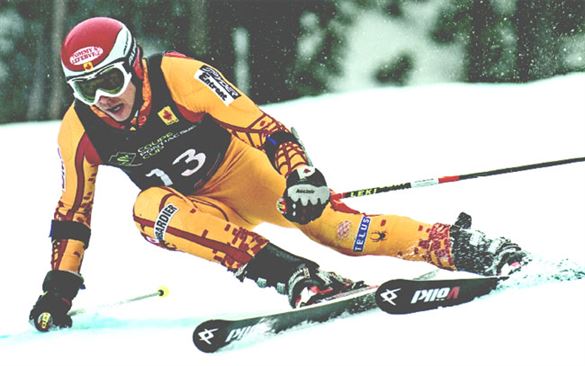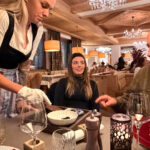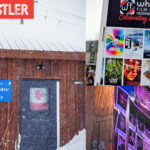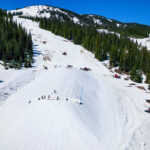From the Fall 2007 issue

In today’s world of ski racing, the “home hill advantage” can be the difference between gold and no medals. John Kucera cited the edge he found from racing the Lake Louise downhill in Nor-Am events three years before his spectacular win at the opening World Cup race last season.
In all major alpine ski racing speed events, the opportunity to train or race on the competition venue has become very limited. Rarely do athletes get more than two training runs. So a rookie has one run to learn where to go, and a second run to try to learn where to go fast. Small wonder the veterans have an enormous edge when it comes to factoring in changing snow conditions, visibility, start numbers or the many variables an athlete cannot control. This is the “experience” so often referred to by TV analysts, the wealth of information stored away in a ski racer’s memory over time. This is why the veterans maintain their leadership position—until the newcomers become “veterans.”
Fortunately, we have a national sponsor, General Motors, that is keen to see the Pontiac GMC Canadian Championships be the anchor event training our athletes, of? cials and volunteers. This event enables ACA to limit access to the Olympic venues to a maximum of 30 foreign entries (compared to a FIS event, where there is no limit).
Then there are the Games “test” events. In 2008, Whistler will host both men’s and women’s World Cup events. For 2009, the IPC World Cup gives Paralympic athletes their turn on Whistler’s Franz’s Run.
The twist of fate that aids Canadian preparation is the scheduling of only super- G and GS events for men and downhill and super-combined events for women in the to be run on Whistler’s Dave Murray course since the last World Cup race held in 1994 will be Canadian Championships races. On Franz’s Run, we will ensure our athletes have several special training opportunities to build volume and experience for our Olympic and Paralympic prospects. Canadian athletes will have six different competitions on the Olympic venue and three planned training camps.
Gaining the edge is not limited to racecourse experience. Take a look at how the Austrians have already set their Olympic plans in motion by securing a training venue at Sun Peaks, from where they will stage their athlete preparation for the pre-season of each winter and the Olympics. Rumours are they will ? y athletes in and out of Whistler by helicopter to optimize their training and preparation. ACA has a similar plan in development to train on similar tracks to the Olympic runs and to provide a familiar, positive environment for our team.
Home advantage also extends to research and ideas. This is why ACA has acquired a state-of-the-art base grinder—the only one of its kind in North America—to learn more about the science of glide. We plan to examine the unique maritime environment of Whistler, down to the shape and con? guration of the snow crystals.
There is one additional quality we have worked hard to instill in the Canadian ski racing system to build our home advantage. It’s an ethic of discipline. Discipline to stay focused on the goal—to win. Discipline for our athletes to maintain the drive to aim to be the best, for our coaches to provide the tiny details of preparation so our athletes have the best possible training opportunities or race tactics, and for our program leadership to seek out every advantage.
The discipline to be a champion must come from within. And it must be embraced by everyone—athletes, coaches, of? cials, management, provinces, ski clubs—if we are to build a winning team and meet our ambitious goal of joining and leading the major ski nations in 2010.



